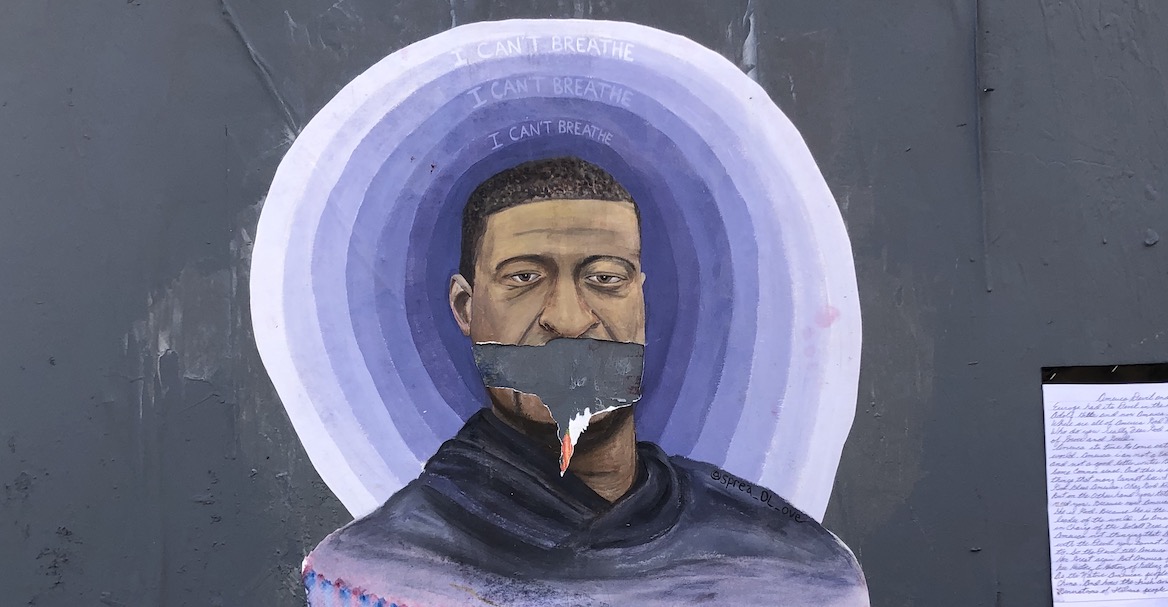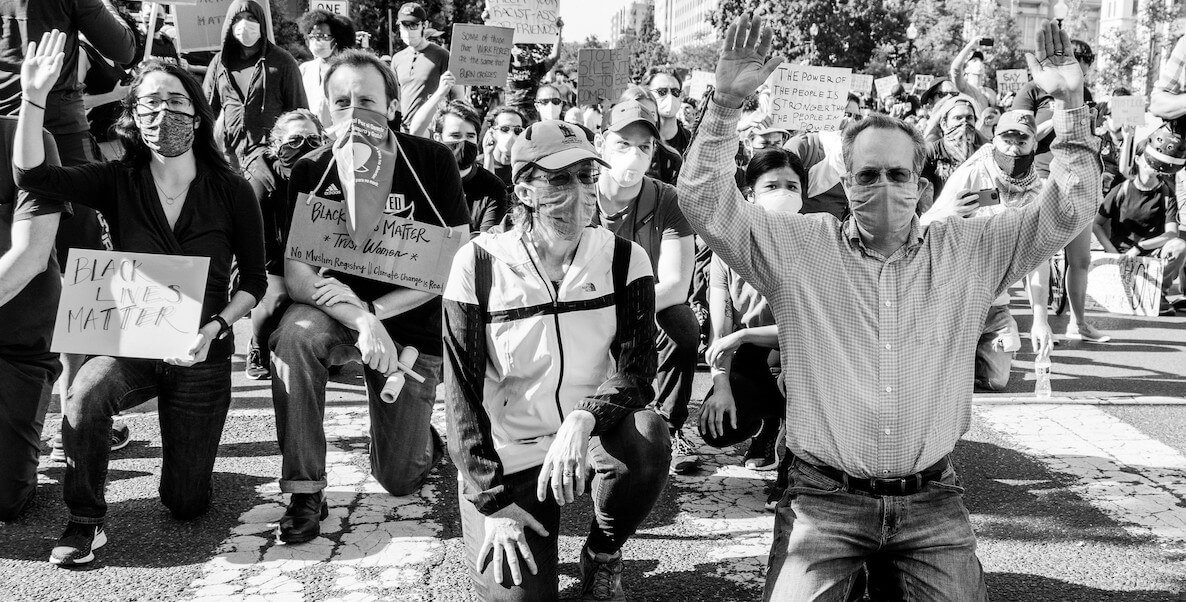In the aftermath of last week’s allegations in an ESPN report of racism, sexism and employee harassment by Robert Sarver, the longtime owner of the NBA’s Phoenix Suns, Martenzie Johnson, writing in The Undefeated, held that “the Phoenix Suns report is a problem for white men to solve.”
Johnson correctly pointed out that “As much as the report about [Phoenix Suns owner Robert Sarver]’s long history of alleged racist and sexist speech feels like a Black or women’s issue, it’s very much a white men’s issue.” That’s because, as the article’s subtitle states: “Asking Black Suns employees to answer for Robert Sarver ignores the root of the problem and existence of the solution.”
Despite holding most of the power in every aspect of our society, White men were underrepresented in the protests, and were always the most underrepresented group in any DEI (Diversity, Equity, and Inclusion) training, or in any anti-racism or pro-justice work.
The Suns’ controversy, and Johnson’s take on it, brought me back to my own “my truth” story I had back in the early days of AND 1, the basketball company I co-founded in 1993. I hope my story of instinctively placing the burden of fighting racism on my Black partners and friends can help other white men not make the same mistake I made.
What We Should Do
I am one of the cofounders of AND 1, a basketball sneaker and apparel company that had its heyday in the late ‘90s and was most well known for its trash talking t-shirts, big baggy shorts, Vince-Carter-dunk-contest-wearing Tai Chi shoes, Latrell Sprewell’s “American Dream” commercial, and its MixTapes that blew up into a nationwide streetball tour, ESPN TV series, and video game.
Our first New York City sales rep was the son of a senior Nike exec considered “the Godfather of the NYC sneaker business.” Sales reps call on all the independent Mom-and-Pop shops in neighborhoods across the city. These are the shops that set the trends and make things cool. If a brand gets hot “on the streets”, Foot Locker and other big chains will get on board, give a young brand national premium distribution, and put you on your way to living the Dream.
Sometime during our first year in business, while on his cell phone talking with my partner Guy, our rep yelled “C’mon!”, and then said something like, “Stupid n$%^” under his breath as a Black woman walked in front of his car, too slowly apparently, as the light turned green somewhere in Harlem.
“What did you say?,” Guy asked, quietly. “Nothing. Nothing. I wasn’t talking to you,” was the reply.
“Mmhmm,” Guy sounded back.
In a few minutes, all of the AND 1 partners—four white guys, two Black guys, all in their mid-20s—were sitting around our little conference room table. Guy related what had happened and after a few “Daaamns” and “That’s fucked ups”, I asked Guy, who is Black, “What do you think we should do?”
RELATED: Taney Street residents are working to change their racist street name
Our partner Ray’s eyes widened, and his eyebrows raised a little. He tilted his head ever so slightly. Ray, who is also Black, looked at me and said, “What do you think we should do?”
We fired the rep immediately. While we couldn’t know the outcome at the time, over the next decade AND 1 succeeded without the sales rep who we thought might hold the keys to the kingdom, growing to $250 million in global revenues and becoming the number two basketball brand in the world at the time. AND 1 succeeded without my accommodation of racism hanging around our necks.
One mistake I won’t make again is asking Black friends or colleagues what the right thing to do is when I already know it, but am just too afraid of what the consequences might be of doing the right thing.
Even if those inside connections would have helped our business, that wasn’t a trade I should have even implied we were willing to make. Forget about not being a good antiracist. That was not being a good partner, or a good friend.
By asking Guy and Ray what they thought, I was implying to them—and to my three other White partners—that if Guy and Ray were willing to stomach a racist colleague demeaning their humanity by using the N-word, then so was I. That’s fucked up.
Where are the white men?
Last year, as White people took to the streets in solidarity with Black Lives Matter, a longtime colleague, a Black woman, asked me, “Where are the White men?”
She noted that, despite holding most of the power in every aspect of our society, White men were underrepresented in the protests, and were always the most underrepresented group in any DEI (Diversity, Equity, and Inclusion) training, or in any anti-racism or pro-justice work. I told her that I needed to sit with that and would get back to her in two weeks.
In that time, I made a commitment to work in community with other White men for racial justice, beginning with our own learning and unlearning about race and racism. We try to be better tomorrow than we were yesterday, and try to translate our learning into action in our families, our companies, our communities, and our country. We are all imperfect. I make mistakes all the time. One mistake I won’t make again is asking Black friends or colleagues what the right thing to do is when I already know it, but am just too afraid of what the consequences might be of doing the right thing.
That doesn’t mean I will react to every situation without taking time to reflect, first within myself, then with other White men doing the work, so as not to burden further and unnecessarily my Black and Brown friends and colleagues. If still uncertain how my action or inaction might impact them or their racial justice strategies, I will also consult with Black and Brown people who have chosen to be in relationship with me or our community, often compensated to do so to minimize the feeling of being in an extractive relationship. I need others to help me see more clearly. That is not a weakness. That process is a core competency for leadership today.
This community of White men from across the country now zooms every Tuesday. We support each other. We celebrate our occasional small wins. We hold each other accountable. We believe everyone has something to contribute and everyone has something to learn. All are welcome.
Consider this your invitation to join us. Register here to attend a WMRJ (White Men for Racial Justice) Open House on Tuesday December 7 or Wednesday December 8 from 8:00-9:00 pm ET.
As Martenize Johnson said, White men are needed. Let’s get to work.
Jay Coen Gilbert is cofounder of AND 1; cofounder of B Lab and the B Corporation movement; and CEO of Imperative 21.
The Citizen welcomes guest commentary from community members who stipulate to the best of their ability that it is fact-based and non-defamatory
![]()
RELATED
Photo courtesy of Victoria Pickering / Flickr




